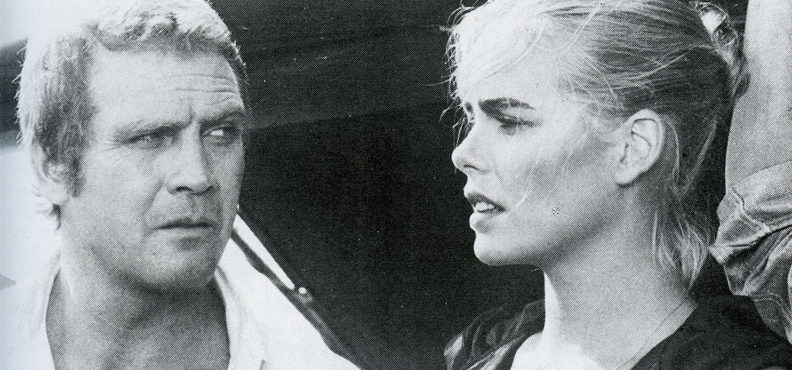
31+ Days of Horror. 33 Horror Movies. 33 Reviews. Hooptober Challenges and Bonus Tasks.
View my 2016 Cinema Shame/Hoop-Tober Watch Pile Shame-a-thon Statement here.
Nature of Shame:
Despite loving the giallo genre and 1960’s and 70’s Italian cinema and Mario Bava, I’ve not seen huge chunks of the Bava filmography.
Hoop-tober Challenge Checklist:
Decade – 1970’s
Country of Origin – Italy
Master Classers – Bava
The Advance Word: El Cinemonster lists A Bay of Blood among his favorite movies of all time — not just from Mario Bava. Earlier this year I fixed the CinemaShame that was Blood and Black Lace. I aimed to do right by another Bava essential. Also Claudine Auger.

#10. A Bay of Blood
After finishing Mario Bava’s A Bay of Blood, I had to pause. I had to pause in order to reflect upon that which I’d just seen. I had many immediate questions. The dense ones came first. Dense ones like 1. Did that just happen? And 2. Did the movie remotely justify that ending? After I skipped back ten minutes and watched the finale again, I could at least move on, satisfied that A Bay of Blood had aimed for a post-scriptural wicked tickler and take a closer look at the film itself.
(For the record: 1. Yes. It happened; and 2. Maybe?)
If you haven’t seen A Bay of Blood, you may be left in the fog regarding this “ending” business. I won’t spoil it. I’ll dance around it, but I promise I won’t spoil it. Detailing the conclusion would, in fact, direct your viewing of the film. I don’t want to do that. I want you to discover it just as I did. For now I’ll steer clear of the specifics. For now I’ll start at the beginning… as you do.

A Bay of Blood begins with the brutal lynching of an invalid woman played by the iconic European actress Isa Miranda. In certain ways this death, though bloodless, becomes the most difficult to watch in the film (and there are many). Bava abstains from dialogue throughout this opening scene. The old woman, alone in her home, senses something amiss. You feel this isolation and fear. She knows she’s going to die. As a seasoned viewer of horror films you know she’s going die. She rolls silently from room to room until a noose drops down and grabs her neck. An unseen killer kicks the wheelchair out from beneath her. She struggles, quakes and eventually goes still. Then Bava’s camera reveals the gloved murderer lingering over her dead body.
This specific moment throws expectation on its head.
This is a giallo. We were not supposed to learn the identity of the murderer. Bava calculates his audience’s imbalance and goes one step further. The instant we begin to question Bava’s intentions, another killer shoves a blade into the first one. The scene lays the foundation for A Bay of Blood — a movie that revels in its gruesome, cinematic murders while latently operating on an entirely different level, just like the second killer in this opening scene.

These two characters tell you all you need to understand A Bay of Blood. We just won’t know it until the credits roll. In the above scene, the squid fisherman Simon (Claudio Camaso) and the entomologist Paolo (Leopoldo Trieste) engage in a debate about how killing factors into human “civilization.” They discuss the monstrous reality of nature. Killing for sport vs. killing for sustenance. We don’t have any grasp on the nature of their relationship. They are at once familiar, but combative. Two different species that co-exist, but can never share a common ideology.
Simon: Man should live and let live, and without any interfering.
Paolo: Even that poor squid was free once, Simon, eh? I study Coleopters because I love them.
Simon: Sure, but the squirming little creatures still end up under your microscope. Yeah, he’s dead alright but at least I eat my squid. But I don’t kill as a hobby like you do.
Paolo: Good Lord, Simon; you make me feel like a murderer.
Simon: I’m not saying that, Mr. Fossati; but if you kill for killing’s sake – you become a monster.
Paolo: But, man isn’t an insect, my dear Simon. We have centuries of civilization behind us, you know.
Simon: No, I don’t know. I wasn’t there.
I transcribed the entire conversation because the specific language, which comes off as stilted, almost tone-deaf at this juncture in the movie, explains Mario Bava’s approach to A Bay of Blood. Bava establishes that the murder of the old woman had been motivated by greed. Her husband had killed her to gain control of her estate and the choice piece of property overlooking a secluded bay.

Then the bodies begin to pile up, quite literally. Teenagers who just happen to be hanging out on the property get offed in unspeakable fashions — per established tropes of horror films — merely for being free from societal burdens and, well, horny.
A Bay of Blood devotes a large middle section to the execution of these innocents, characters that have no ties to the property or the sought-after estate wealth. Their personal freedom itself seems to be their greatest offense. They do not covet wealth; therefore, they threaten the status quo. They are the wild animals, slain by humans for no good reason. They are Paolo’s insects in Simon and Paolo’s aforementioned argument.
The killer spears one one couple during coitus — the spear impaling the bed and both of their naked, writhing bodies, and recalling specifically the way in which Paolo mounts his insects for collection. Even after the spear gores their flesh, they continue to thrust, bringing their sexual act to a climax. (Bringing to mind Shakespeare’s line from Romeo and Juliet “Give me my Romeo, and when I shall die / Take him and cut him out in little stars.” When Juliet says “die” she really means orgasm. Anyway, not sure if it’s related, but just note the Shakespearean sex/death/orgasm thing and move along.) Bava punctuates their apparent animalism and their untethered freedoms — traits that A Bay of Blood has positioned as anti-human.

As A Bay of Blood dispatches most of the potential killers/victims, the “whodunnit” mystery becomes a secondary concern. Everyone did it. Every single one of these characters (with the exception of the dead teenagers piled up in the spare bedroom) proves to be guilty of greed and/or capable of murder. While it’s horrible that someone’s out there slashing folks up, Bava suggests that the actual act of murder is potentially no worse than the willingness to do so or even the festering greed.
If you recall the opening of the film, the husband hangs the old woman and then in turn is killed himself. Bava bookends the film with another bingo-bango murder-murder. It again feels like Bava has pulled the rug out from beneath us. He’s murdered the murderer(s) via someone unseen and off-screen. Only this time, instead of 5 minutes, we’ve had 100 minutes to digest the film and 100 minutes with these characters. This final act, a blink-and-you’ll-miss-it finale, breaks so many narrative rules that the audience must reconcile that the only “rules” are constraints my which we’ve imposed upon these films from our frame-of-viewing-reference. Bava flaunts convention. He reminds you about his thesis statements by underlining his entire film twice and circling the statements he made in the opening scene and the conversation between the entomologist and the squid fisherman.
Humans are f’ing animals. Death is random. Murder is chaos. The End.
Bava drops the microphone and allows the audience to decide whether this scene detracts or punctuates an otherwise gruesome, anarchic slice of giallo genius. I have my opinion. Now I’d like to hear yours.

Technical Notes:
I watched the DVD contained within the Mario Bava Collection Volume II. The DVD looked fine, but I’m game to give this a rewatch on that 2013 Kino Blu-ray when I get the opportunity to upgrade. The Kino Blu-ray, by the way, is superior to the old 2010 Arrow UK edition. Just in case you were in the market.
Final Thoughts:
That love-it or hate-it ending can really warp a final thought, you know? There’s so much to love about A Bay of Blood that if you’re in the “love-it” camp, this could be Bava’s underappreciated masterpiece. If you’re on the side of the the camp that just can’t assimilate the weird with the wicked, you might find yourself confused and a little bewildered. Now having written this moratorium on my own viewing experience, I’m even more conflicted. I’m going to aim somewhere in between and hope for the coming epiphany to inspire my next viewing.
30Hz Movie Rating:

 Blu-ray Verdict: I slummed it with the DVD. If you want to read a nice opinion on the Kino Blu-ray, check out this writeup from Mondo Digital.
Blu-ray Verdict: I slummed it with the DVD. If you want to read a nice opinion on the Kino Blu-ray, check out this writeup from Mondo Digital.
Availability: Bay of Blood is available on Kino’s Remastered Blu-ray.
Earlier 2016 31 Days of Horror entries: #1. Vampyros Lesbos / #2. A Chinese Ghost Story / #3. The Haunting of Morella / #4. Delirium (1972) / #5. A Lizard in a Woman’s Skin / #6. She-Wolf of London / #7. Son of Frankenstein / #8. Killerfish / #9. The Bride of Re-Animator
















 Blu-ray Verdict: Definitely pick this up for your next Awkward Stare Drinking Game. Pace yourself. Godspeed. I’ve got a copy for you, actually.
Blu-ray Verdict: Definitely pick this up for your next Awkward Stare Drinking Game. Pace yourself. Godspeed. I’ve got a copy for you, actually.